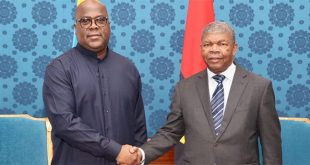– No more prestige –
Nuclear powers argue their arsenals serve as a deterrent against a nuclear attack and say they remain committed to the nuclear Non-Proliferation Treaty (NPT).
The decades-old NPT seeks to prevent the spread of atomic weapons but also puts the onus on nuclear states to reduce their stockpiles.
Impatience however is growing among many non-nuclear states over the slow pace of disarmament as are worries that the weapons of mass destruction will fall into the wrong hands.
Disarmament campaigners say the treaty will go a long way in increasing the stigma associated with nuclear weapons and will have an impact on public opinion.
“The key thing is that it changes the legal landscape,” said Richard Moyes, director of the British-based organisation Article 36.
“It stops states with nuclear weapons from being able to hide behind the idea that they are not illegal.”
“This is really about removing the prestige from nuclear weapons,” said Beatrice Fihn, director of the International Campaign to Abolish Nuclear Weapons.
“They are seen as something very valuable and as giving power. This is supposed to remove that.”
During a meeting at the General Assembly, the treaty is expected to be adopted by consensus by the conference of nations that has negotiated the document without the nuclear powers and their allies.
After its adoption, the treaty will be open for signatures as of September 20 and will enter into force when 50 countries have ratified it.
During a vote at the UN General Assembly in December, 113 countries voted in favor of starting negotiations on the new treaty while 35 opposed the move and 13 abstained.
 The Independent Uganda: You get the Truth we Pay the Price
The Independent Uganda: You get the Truth we Pay the Price


